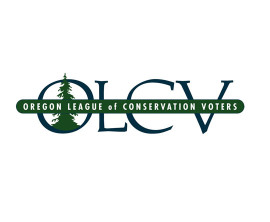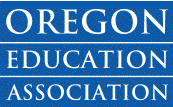Democrat Chuck Riley’s defeat of Republican Bruce Starr on Nov. 4 for Oregon’s 15th District Senate seat cost a ton of money. Now, like a company that’s gone public, his key supporters are going to expect a return on their investments.
As of Dec. 8, 2014, Riley’s campaign committee, Friends of Chuck Riley, had raised $913,372.33 and spent $889,757.01, according to records on file with the Oregon Secretary of State. The onslaught of campaign cash was so great that the contest ended up being the most expensive state Senate race in Oregon history.
But it was also a very tight race, with Riley finally coming in ahead by just 287 votes out of 39,734 cast. Likely costing Starr the race was the Libertarian candidate, Caitlin Mitchel-Markley, who captured 3,593 votes.
That suggests the next race will be hard fought as well, particularly if no 3rd party candidate runs, and that it will again require a substantial war chest. To create that war chest Riley will have to placate some big givers. After all, it was the big givers who filled his coffers, not the little people.
So who does Chuck Riley owe for his victory?
The biggest cash/in-kind contributors to Friends of Chuck Riley were Riley’s own Democratic Party, unions, a climate change activist, trial lawyers, and two national gun control groups.
The money from the Democratic Party came from two groups, the Senate Democratic Leadership Fund ($174,585.50)
and the Democratic Party of Oregon ($107,577.56), which received significant contributions from some of the same characters as Riley’s committee.
For example, former New York City Mayor Michael Bloomberg’s gun control group, Everytown for Gun Safety, donated $75,000 directly to Friends of Chuck Riley and $50,000 to the Senate Democratic Leadership Fund.
Riley’s committee also pulled in $10,000 from the Brady Campaign to Prevent Gun Violence.
Other big contributors to Riley’s Committee included:
• Service Employees International Union (SEIU) $204,460.39
This includes: $193,661.96 from Citizen Action for Political Education of SEIU Local 503; $10,798.43 from Committee on Political Education of SEIU Local 49.
• Oregon League of Conservation Voters PAC $191,120.02
OLCV made an in-kind contribution of $127,498.50 in the form of a TV ad. The balance was in the form of: cash; in-kind field work, postage, preparation and production of advertising and a phone program. The TV ad money came out of a $130,000.00 contribution to OLCV from NextGen Climate Action Committee, established by billionaire Tom Steyer to help candidates who support the need to deal with climate change.
• Oregon Trial Lawyers Association PAC $38,477.87
• Oregon American Federation of State, County
and Municipal Employees (AFSCME) Council 75
Political Soft $17,500.00
• Oregon Education Association – People for
Improvement of Education $8,342.00
• Other unions $10,500.00
Joint Council of Teamsters No. 37 Political Fund
$1,750
United Food and Commercial Workers Union Local
555
$4,500
Oregon School Employees Association – Voice of
Involved Classified Employees
$1,000
International Union of Operating Engineers, Local
701 Misc PAC
$250
American Federation of Teachers-Oregon Candidate
PAC
$3,000
All of the above contributions totaled $752,563.34. That’s 85 percent of total expenditures by Riley’s committee.
Compare that with the amount that came in from contributors of $100 or less, about $8000. That’s less than 1 percent of total expenditures by Riley’s committee. Even if all the small contributors had bundled their money in an effort to enhance their potential influence, they would have been a small player. They might as well have spent their money on a nice dinner out.
So, how are we going to know the influence of the big donors on Riley? It’s not going to be easy.
First of all, it’s not clear that the size of Riley’s war chest was the key determinant in his victory. There’s no hard evidence of a constant linear linkage between campaign money and victory, although a candidate does need enough money to deliver key messages to critical audiences.
But now that Riley has been elected, the major donors are likely to influence positions Riley takes.Equally important, large donations to Riley are likely to give certain interests better access to him to influence public policy in general.
Big donors will also probably have an ability to influence the shape and specifics of legislation that’s before Riley much earlier in the legislative process, when it’s harder for the public to detect.
Large donations may also carry the day on critical votes where Riley’s one vote for or against can determine the fate of a bill. “These low salience critical votes present the most likely circumstances for members to repay groups for their financial support,” according to Lynda Powell at the University of Rochester in a paper on The Influence of Campaign Contributions on Legislative Policy.
One thing is clear – the big donors are going to be keeping an eye on Riley, just like big investors keep an eye on the stock market. All investments carry some risk, but the reward for risk can be a great return.







